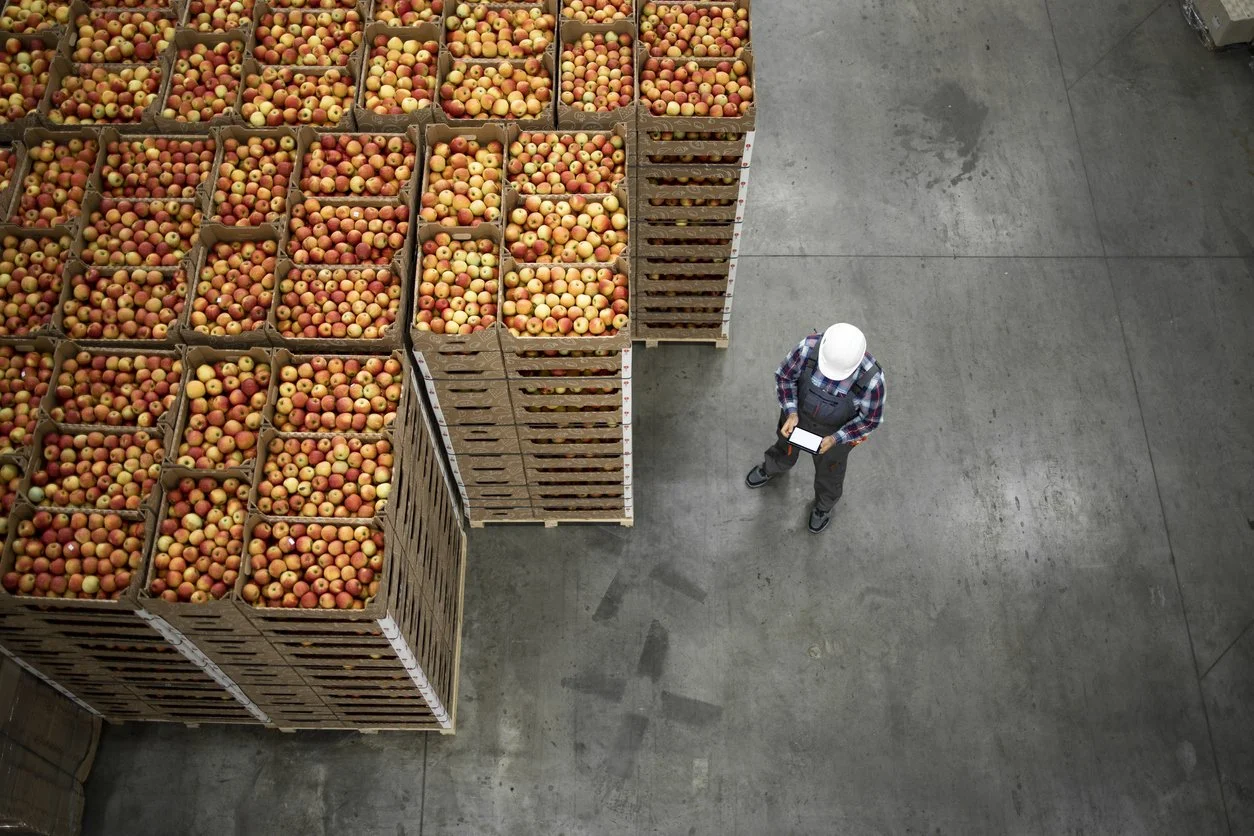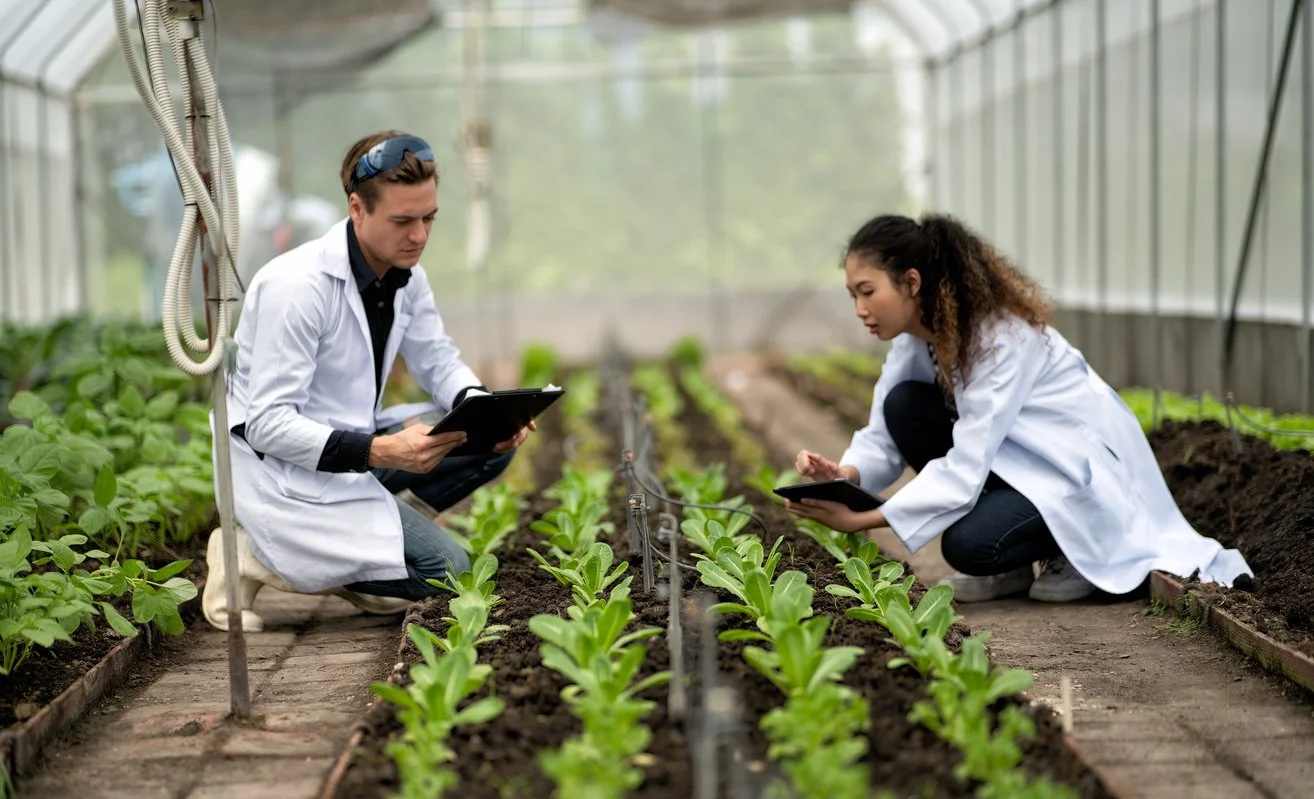Getting an Organic Farming Certification
Discover > Starting a Farm > Getting an Organic Farming Certification
Acquiring an organic certification is a major milestone for producers who strive to provide consumers with high-quality and all-natural food products. Also, wider access to the market will be given to any producer who can get certified. On both ends, it's a win-win situation but there are particular processes to follow to finally get that sought-after organic certification.
A step-by-step process is the simplest way to organize the different things you have to cover in acquiring both USDA and Texas Organic Farming Certification. Ideally, this will allow for a smoother transition towards producing high-quality certified organic products for your community and beyond.
The USDA Organic Certification Process
If you’re running an agricultural business, a USDA Organic Certification can be a great way to differentiate your products and increase marketability. USDA certification ensures that the organic product was created following USDA regulations and national organic program standards.
It indicates that no synthetic ingredients are used in the production process and that all farming practices follow sustainable agriculture principles.
In order to receive USDA Organic Certification, you must complete a few steps.
Acquire USDA Accreditation
This is the first step you need to take in order to obtain USDA certification. You will need to submit an application and pay the applicable fees in order to be accredited by USDA.
Once your business has been approved for accreditation, you will receive USDA certification documents.
USDA Organic Regulations
The United States Department of Agriculture (USDA) established the National Organic Program in 2002, which created national standards regulating the production, processing, and labeling of organic products. The USDA Organic Regulations are the regulations that govern how producers certify their products as being organically produced.
To be eligible for certification, a farm or business must follow strict production and handling standards set by the USDA which include:
Prohibiting synthetic fertilizers and pesticides
Prohibition on the use of genetically modified organisms
Requirement for crop rotation to maintain soil health and fertility
Requirement for animal welfare standards
Ban on antibiotics and growth hormones in livestock
The USDA Organic Regulations also set limits on what type of materials producers can use in processing, storage, packaging, and labeling of organic products. For example, certain additives and processing aids are prohibited from being used on organic products.
In addition to the production and handling standards set by the USDA Organic Regulations, producers must also be certified by an accredited certifying agent in order to label their product as being “USDA Organic”. A certifying agent evaluates the farm or business and inspects their facilities to make sure they are meeting the USDA Organic Regulations.
By following the USDA Organic Regulations, producers are able to provide consumers with assurance that their organic product meets rigorous standards set forth by the USDA. Ultimately, these regulations help ensure that organic products remain pure and natural while still providing consumers with safe and healthy products.
Develop an Organic System Plan
This plan must describe how your organic product is produced and processed, including soil fertility and pest management practices, animal living conditions, and other production methods.
You’ll need to provide detailed information about your harvesting, handling, processing, packaging, labeling, and other USDA requirements.
Submit Your Documents
Once you’ve completed your USDA Organic System Plan, you will need to submit it along with other supporting documentation to the USDA.
This includes records that demonstrate that your organic system plan is being followed, as well as third-party certifier information (if applicable).
Get Certification
USDA-accredited certifiers will inspect your operation and review records to ensure that USDA organic requirements are met. If everything is in order, you’ll receive USDA Organic Certification for your product or operation.
By obtaining USDA Organic Certification, you can take advantage of the USDA “Organic” seal, which is a widely recognized symbol of agricultural excellence. USDA certification also allows you to access higher-value markets and expand the reach of your products.
With USDA Organic Certification, customers can be assured that your product was produced according to USDA standards and regulations, giving them peace of mind that they are purchasing quality organic goods. So, if you’re looking to differentiate your product and increase marketability, USDA Organic Certification can be an ideal choice.
Remember—it takes time for USDA Organic Certification to be granted, so make sure that you begin the process early to ensure that your agricultural operation is USDA-certified.
Organic Certification for Texas
Living in Texas, we all know that we're in close proximity to the food production industry. Varying in operational sizes, the Lone Star State hosts food production facilities from industrial food farms to family-owned certified organic farms.
If you are looking to get organic certification in Texas, there are a few steps that you need to take. The first step is to decide if organic certification is the right choice for your business.
Organic certification is an important business decision and requires an understanding of how organic production works as well as the specific requirements of organic certification in Texas.
Once you have determined organic certification is the right choice for your business, the next step is to determine the organic standards that apply in Texas.
The USDA organic seal applies to organic products sold nationwide, so if you plan to sell organic products outside of Texas it's important to understand what organic standards are required under federal law.
In addition, there are organic production standards in Texas that apply to organic farming operations in the state. It's important to be familiar with both sets of regulations before proceeding to organic certification.
Next is to determine which organic certifying agency you will use for your organic certification. There are several organic certifying agencies available in Texas, and it's important to choose the one that best fits your organic production needs.
Once you have chosen an organic certifying agency, you will need to submit an organic certification application, which includes detailed information about your organic production, in-facility practices, and processing facility. Your organic certifying agency will review your application and may require additional documentation or testing before granting organic certification.
Certified Organic: A Practice of Compliance
Finally, organic certification in Texas requires organic farm inspections by organic certifying agencies or third-party organizations. These inspections ensure organic farms meet organic production requirements and organic standards.
It's important to be prepared for organic farm inspections, as failure to comply with organic standards can lead to organic certification denial or revocation.
Planning to become a farmer? Here are more information on how to become one!










